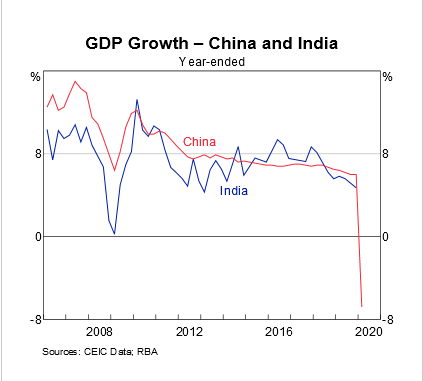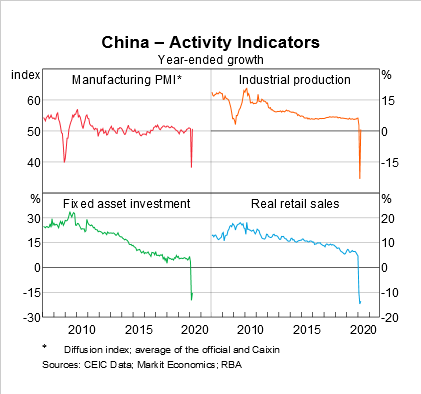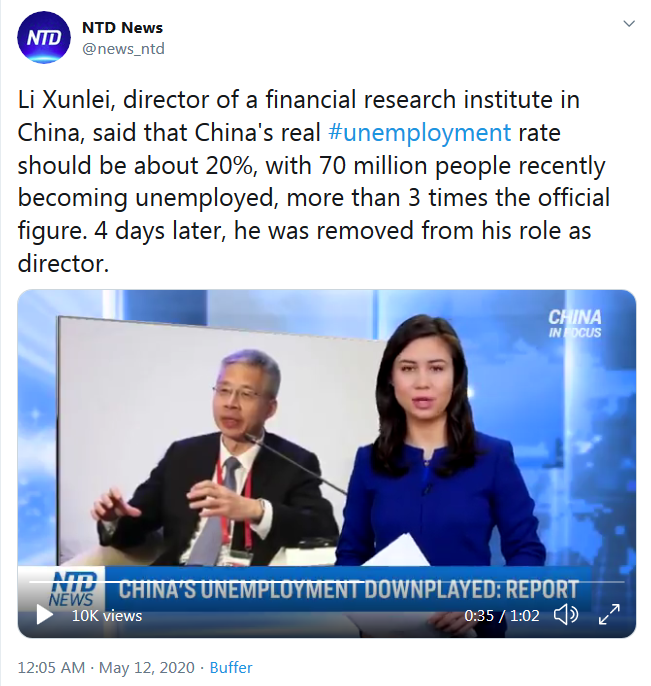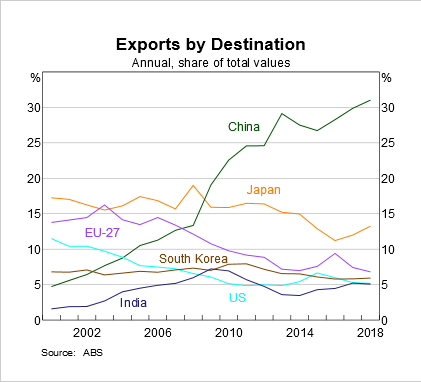
The only way forward for the Chinese is the dismissal of the CCP forthwith. The CCP refuses to become trustworthy. It is not going to happen. That means that China needs apply natioanal elections at the least.
So yes we are actually watching the death troes of the CCP.
What is hapening now, and it is in slow motion is a full global tilt away from China to SE Asia and India. This will quickly empty Chinese factories. It is going to get faster.
A global concensus is also now rising in which the NWO is been completely rejected and voters are asserting their power as well..
China's Pique
May 16, 2020
Recession
"...China is about to be thumped by the greatest external shock in its modern history. According to JPM -14% [GDP] for the US economy and -15% for the Eurozone in Q2 and then worse in Q3.
Global steel demand and prices will crater. China’s 64mt of steel exports will collapse. And this with its already enormous steel inventory and domestic demand shock, plus its returning mining production."
De-coupling
"American technological capacity is hollowed out, even in fields at which we believe ourselves to excel, for example, information science. Apple and Google announced this week that a smartphone app would be forthcoming in May that would inform the user whether they had been in contact with a person infected with coronavirus. Alipay and Tencent had such an app available in mid-February; the South Koreans and Israelis had similar apps available in early March...."
“We need a massive reinvestment in STEM curricula in our high schools and in science and engineering programs at our colleges and universities, so as to expand the available labor and management pools for our re-shored companies.” ....but the lead time will be a generation.
Unemployment
Australia
The Louder They Get
"....the CCP will have to arouse more nationalism as its social contract frays and it will get more hostile to other nations even as it weakens."
First, please read the Disclaimer.
The title is from George Magnus' excellent summary of the threats facing China in the near future From peak China to China pique.
China has grown increasingly belligerent in recent months as it tries to cover up its role in the COVID19 pandemic. In doing so it has compounded the devastating effect of its failure to contain the initial COVID19 breakout in Wuhan; its attempts to conceal the outbreak, including the arrest and intimidation of early whistleblowers, and exerting pressure on the WHO; and its failure to warn trading partners of the danger while at the same time restricting domestic travel and buying up international stocks of medical supplies.
Threats of economic intimidation against a whole host of trading partners, not just Australia, in an attempt to dissuade them from pursuing an international investigation of the virus outbreak, are unlikely to succeed and will instead harden attitudes and strengthen resolve to de-couple supply chains from mainland China.
Violent suppression of protestors in Hong Kong and arrests of community leaders, ruthless imprisonment of Uighur Muslims, and racist treatment of African residents in the country further underline the brutality of the regime and serve as a warning to countries otherwise willing to engage with China that they are unlikely to be fairly treated. A country that uses violence to suppress its own citizens is unlikely to hesitate in treating its neighbors in a similar fashion.
China is an export-driven economy, overly reliant on infrastructure investment to boost domestic demand. Domestic consumption is relatively low. The uncertainty of living under an autocratic regime encourages high levels of saving rather than consumption. A virus-caused domestic recession has hit hard.

Manufacturing seems to have recovered, if you believe the data, but business investment and retail sales show a dead cat bounce.

A large number of SMEs (small-to-medium enterprises) are unlikely to recover.
But the impact of the global recession on China's export-driven industries is only just starting.
David Llewellyn-Smith wrote in March that:
De-coupling is going ahead in Japan and Taiwan but may not be as easy for the US as it seems. Key skills were lost along with manufacturing jobs, especially in the field of engineering. De-coupling is likely to expose skills shortages, especially in high-tech areas like semiconductors and information technology. David Goldman writes in Asia Times:
He quotes Andrew Michta of the George Marshall Center for European Studies:
Nevertheless, de-coupling is bound to hurt both domestic Chinese production and exports.
Rising unemployment, especially among migrant workers, is expected to place an additional drag on consumption in China.

The problem for Australia is that if the PRC economy does contract, our exports will suffer.

DLS sums up the CCP well: the weaker they are, the louder they will get. Unfortunately, the situation also becomes more dangerous if the CCP fail to recognize red lines that could trigger a conflict.
A belligerent state permits itself every such misdeed, every such act of violence, as would disgrace the individual.~ Sigmund Freud
No comments:
Post a Comment